Here we are in 2024. We have come so far in consumer products, but many of these new ones don’t really solve any urgent problems for me:
- This cat door that locks your cat out if they have a mouse in their mouth
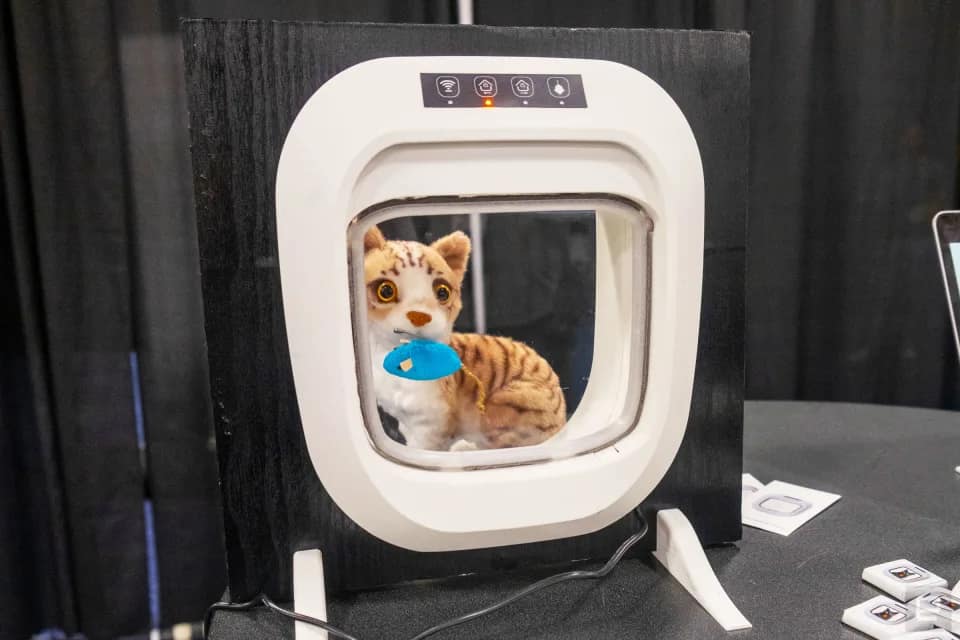
Kitty always bringing in those dead animals… More from Engadget
- $5k Binoculars that identify birds
- Wireless and transparent TVs
Will transparent TV’s be a thing? More from USA Today | Video Credit: AP
- $1000 Indoor Meat Smoker
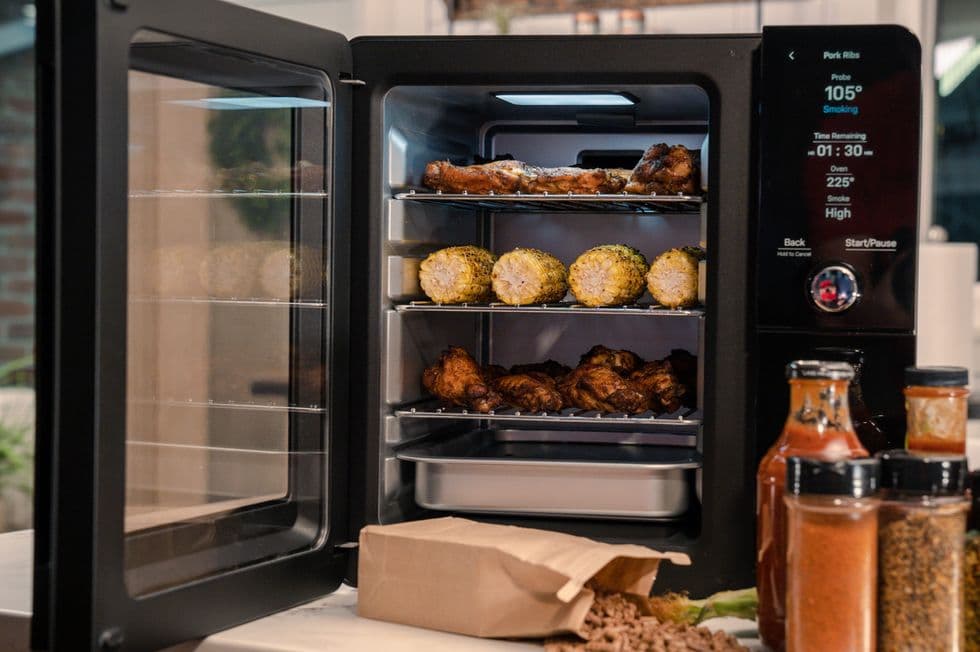
Finally… we can smoke our meats inside. More from Gear Patrol
While I don’t have a pressing need to smoke meats indoors, there is one product I would like that hasn’t materialized yet despite all the technological pieces being there: private, conversational assistants that can genuinely help me get things done.
Imagine a personal assistant that could help you with scheduling, integrate with other devices/apps around you, remember things for you and will indifferently take on boring tasks. If they really work, these are the types of indispensable tools that people will look back on and wonder how they ever lived without.
Of all these product categories, this is the one I see solving some compelling problems for us. The home assistant could take many forms or combination of forms: a pin on your shirt, a watch, robot dog or Rosie from the Jetsons.

Image: James Vaughan
I believe it’s possible households can have their own R2-D2 units/home assistants that interface with the world around it and talk to you this year all built with free and open source software without any subscription dependencies.
Samsung Electronics introduced a new version of its AI home companion robot Ballie. More from Samsung
I think all the pieces are more or less there. We have the capability to run Large Language Models on local machines, open source home automation tooling, offline speech recognition and text to speech. I’ve created a list of some of these projects here and I hope smarter more creative technologist can show us the way: https://github.com/stars/matthewbcool/lists/home-automation
It’s clear to me that smart assistants should be more than just heavily commercialized products. We know the tech giants are working to get up to speed and give us a product that urges us into their ecosystem but I’m skeptical these companies can deliver on the smart assistant I really want.
We need assistants that understand our very personal context, don’t share our information with a mega-corp, and do more for us than just “set a timer for 25 minutes”. Assistants should be able to communicate with the things around them to get real world tasks done. We need them to be able to adapt to the very specific needs we will have and we should have agency over the hardware and software. They shouldn’t rely on third party services unless we want them to have those dependencies.
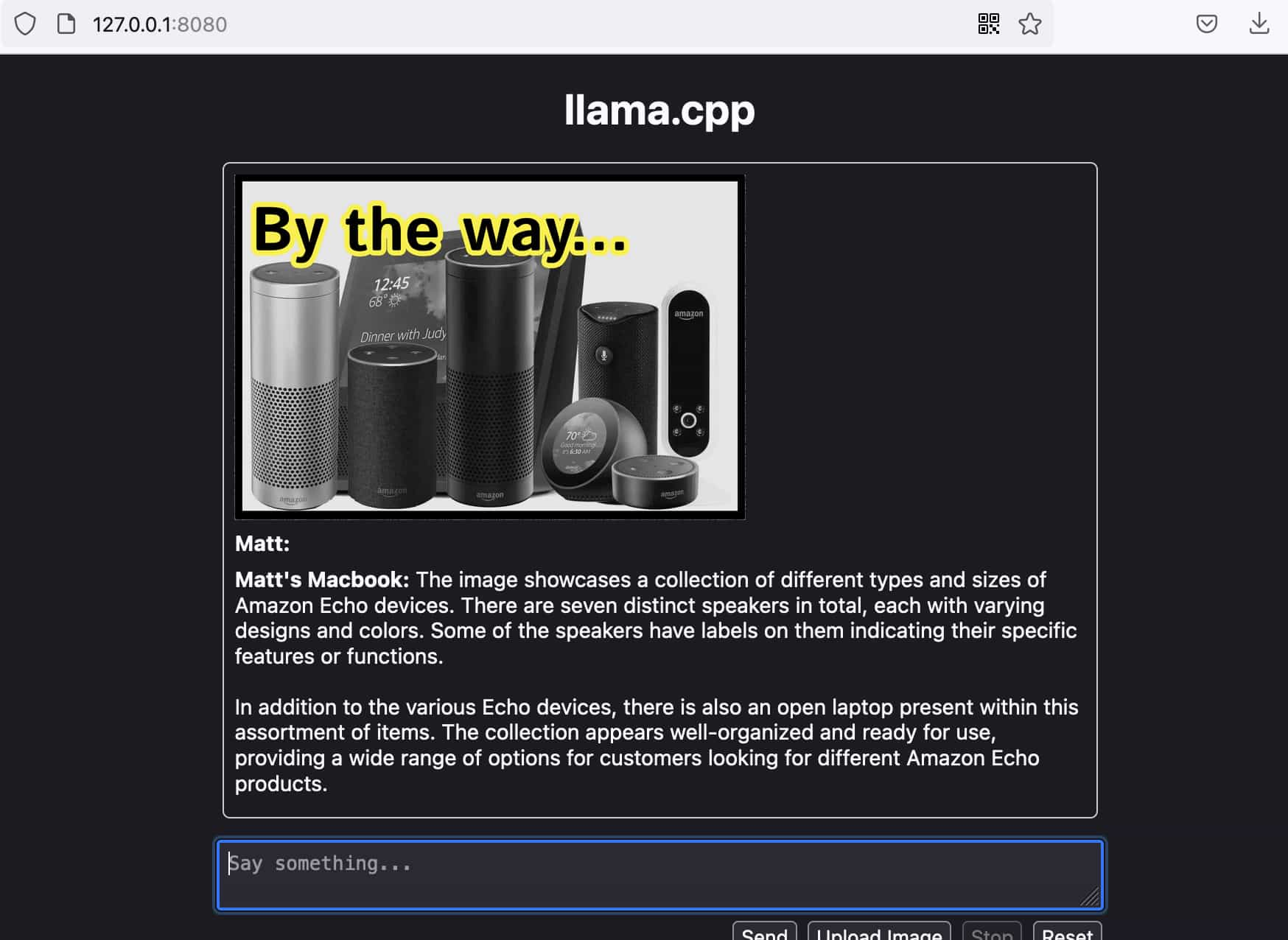
No internet connection used in this chat. Talking to my computer and showing it this picture locally with the help of llamafile.
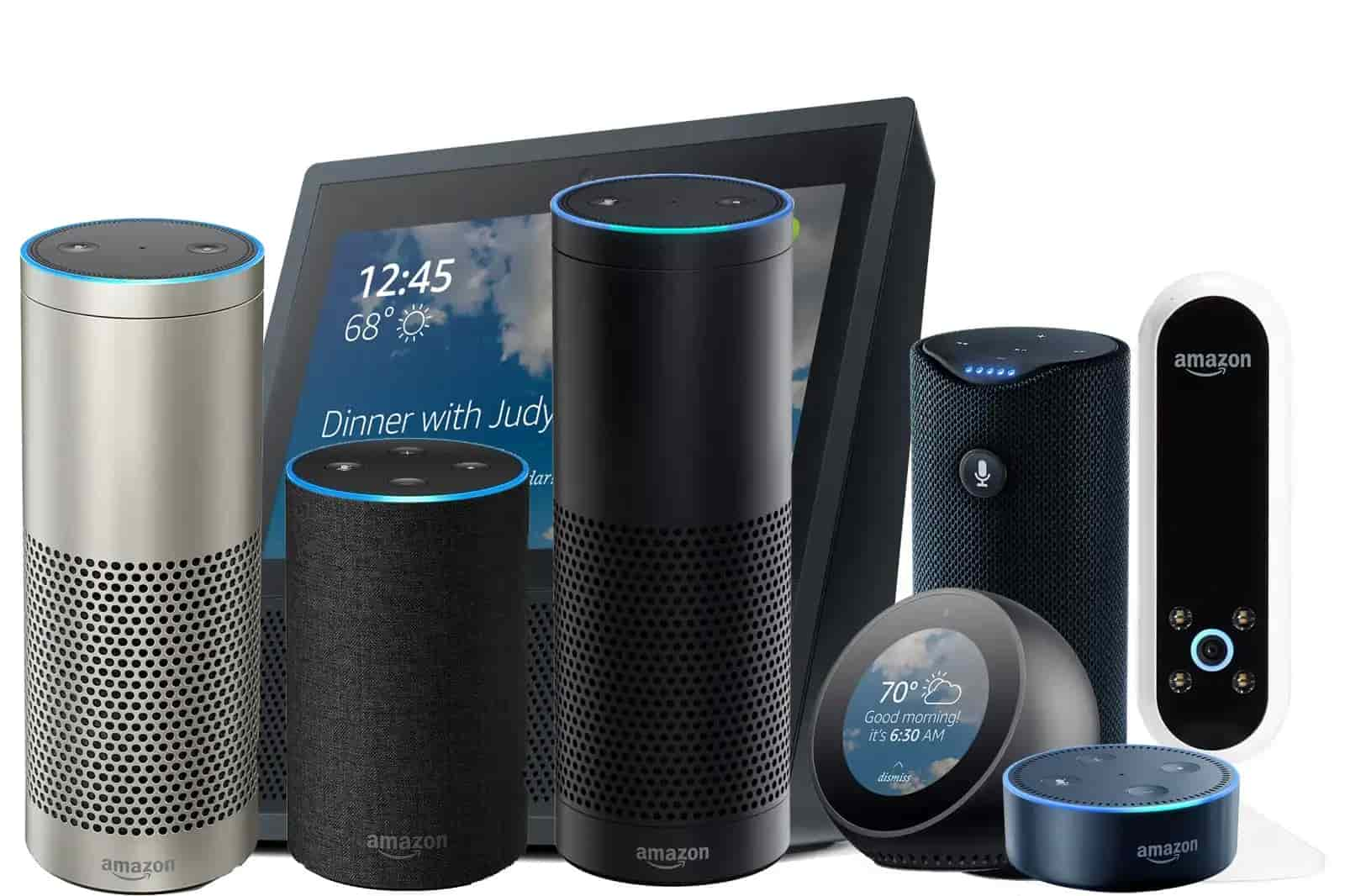
By the way… Alexa please for the love of god stop upselling me and trying to get me into more subscriptions or giving me tips for functions I will never use.
Fun fact, there are over 500 million Alexa enabled devices out in the world today.
Check out this demo from Colin Gillingham who writes:
I got so fed up with how long it is taking Google, Amazon and Apple to incorporate LLMs into their voice assistants that I built my own from scratch!
Enter Open Source:
Open Source devs from around the globe are banding together and stepping in to solve the problems of gluing together this tech to give us the smart assistants that companies wont. Private, local, extensible helpers that can be fully customized to our needs.
Why wait for someone else to productize your life? With open models and readily available wearable hardware, you can accelerate your cognition right now, That’s why @EthanSutin and I are launching a fully open source project to build an ambient smart assistant system that listens to and observes your life, endowing you with super human memory that’s fully in your control.
Efforts like Rabbit and Humane pin are important steps in the right direction in helping us rethink how we interface with devices since we now have better natural language processing via large language models popularized by Open AI’s chatGPT and also being developed by less capital heavy but more open fullstack chat bot solutions.

“No subscription required” Read: https://www.theverge.com/2024/1/9/24030667/rabbit-r1-ai-action-model-price-release-date
Over 200 developers responded to this call by Killian Lucas to make an open source version of Rabbit. The post has been bookmarked over one thousand times and has attracted tech industry veterans including James Futhey, Kyle Boddy, and Greg Fodor offering ideas and contributions. The thread itself is very interesting, I didn’t know we were so far along and so many others cared about this.
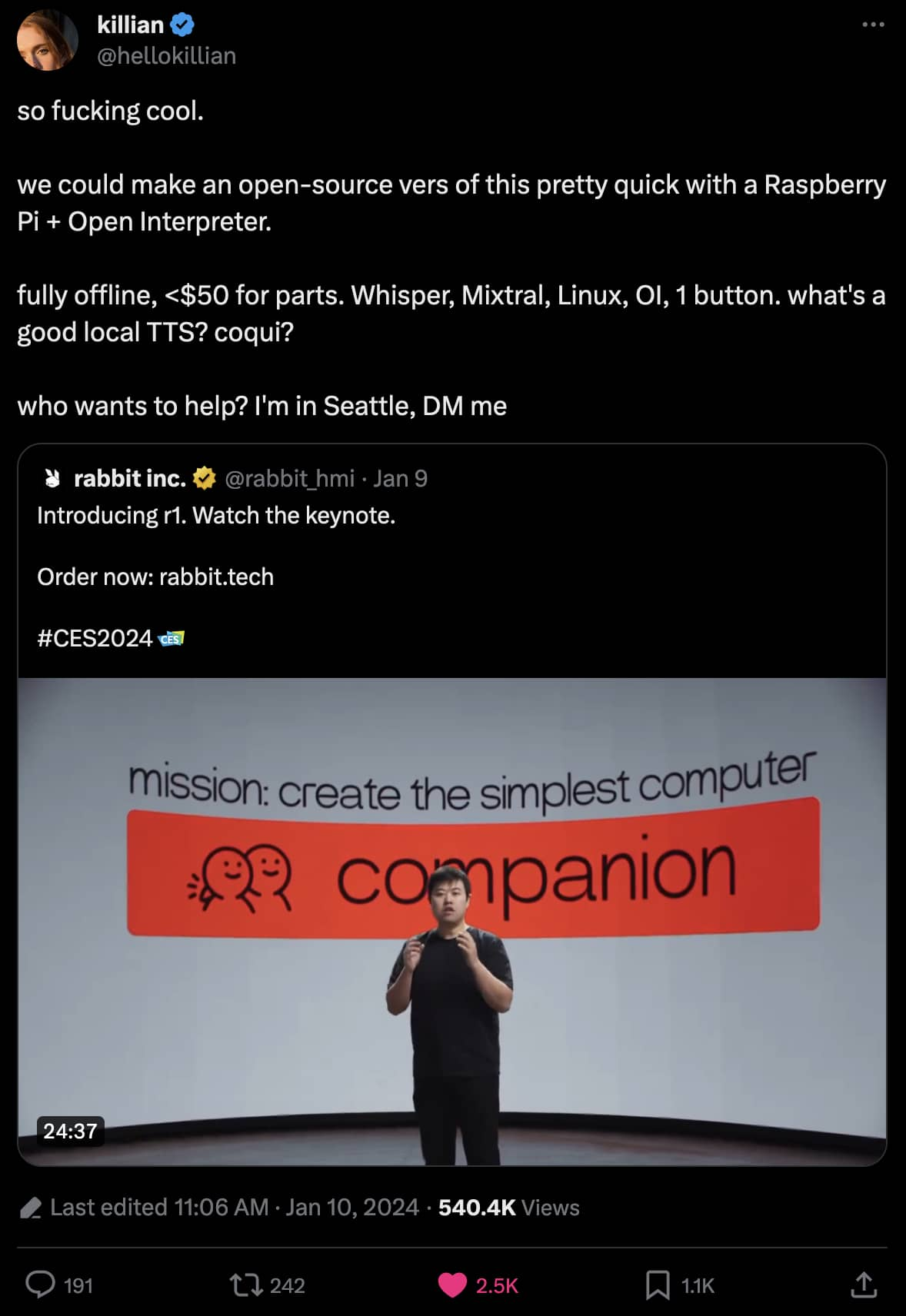
Hopefully these open sorcerers will continue to forge ahead this year and we can move closer to the kinds of smart assistants we want to see in the world.
If you thought some of this was interesting, give this post some claps so I know you appreciate the content.
Also feel free to reach out if you spot any errors. Thanks for stopping by my little corner of the web.